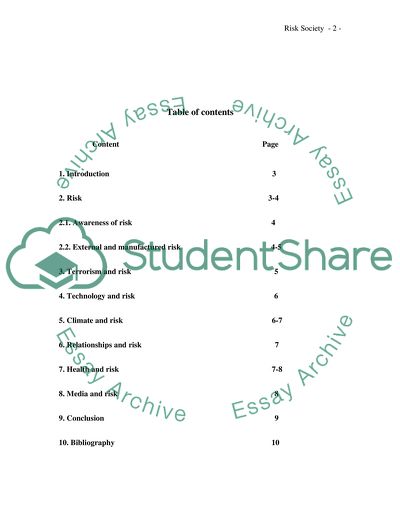Cite this document
(Coverage of the Term Risk Society Essay Example | Topics and Well Written Essays - 1500 words, n.d.)
Coverage of the Term Risk Society Essay Example | Topics and Well Written Essays - 1500 words. https://studentshare.org/sociology/1548174-does-the-term-risk-society-capture-important-features-of-recent-social-changes
Coverage of the Term Risk Society Essay Example | Topics and Well Written Essays - 1500 words. https://studentshare.org/sociology/1548174-does-the-term-risk-society-capture-important-features-of-recent-social-changes
(Coverage of the Term Risk Society Essay Example | Topics and Well Written Essays - 1500 Words)
Coverage of the Term Risk Society Essay Example | Topics and Well Written Essays - 1500 Words. https://studentshare.org/sociology/1548174-does-the-term-risk-society-capture-important-features-of-recent-social-changes.
Coverage of the Term Risk Society Essay Example | Topics and Well Written Essays - 1500 Words. https://studentshare.org/sociology/1548174-does-the-term-risk-society-capture-important-features-of-recent-social-changes.
“Coverage of the Term Risk Society Essay Example | Topics and Well Written Essays - 1500 Words”. https://studentshare.org/sociology/1548174-does-the-term-risk-society-capture-important-features-of-recent-social-changes.


